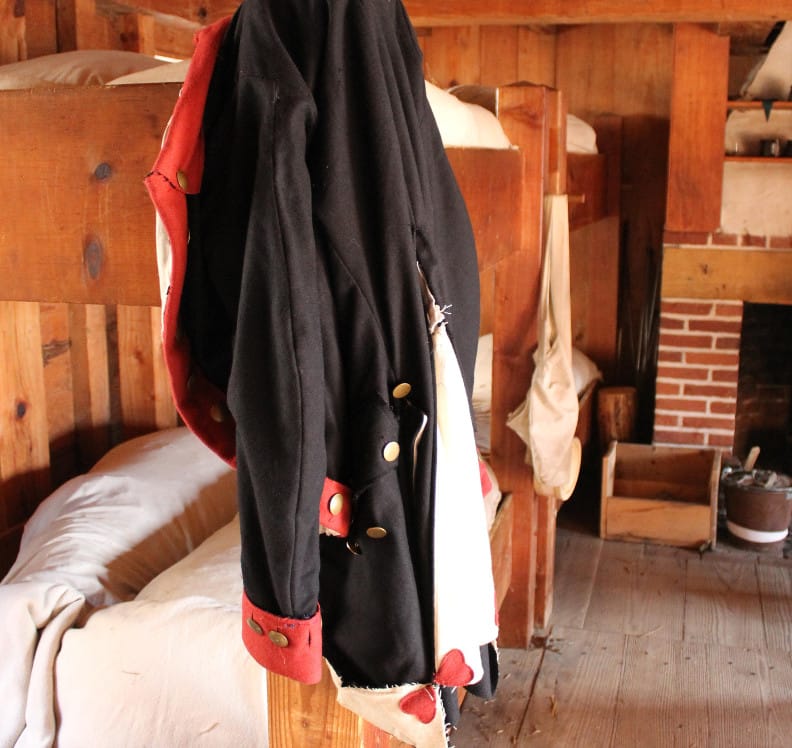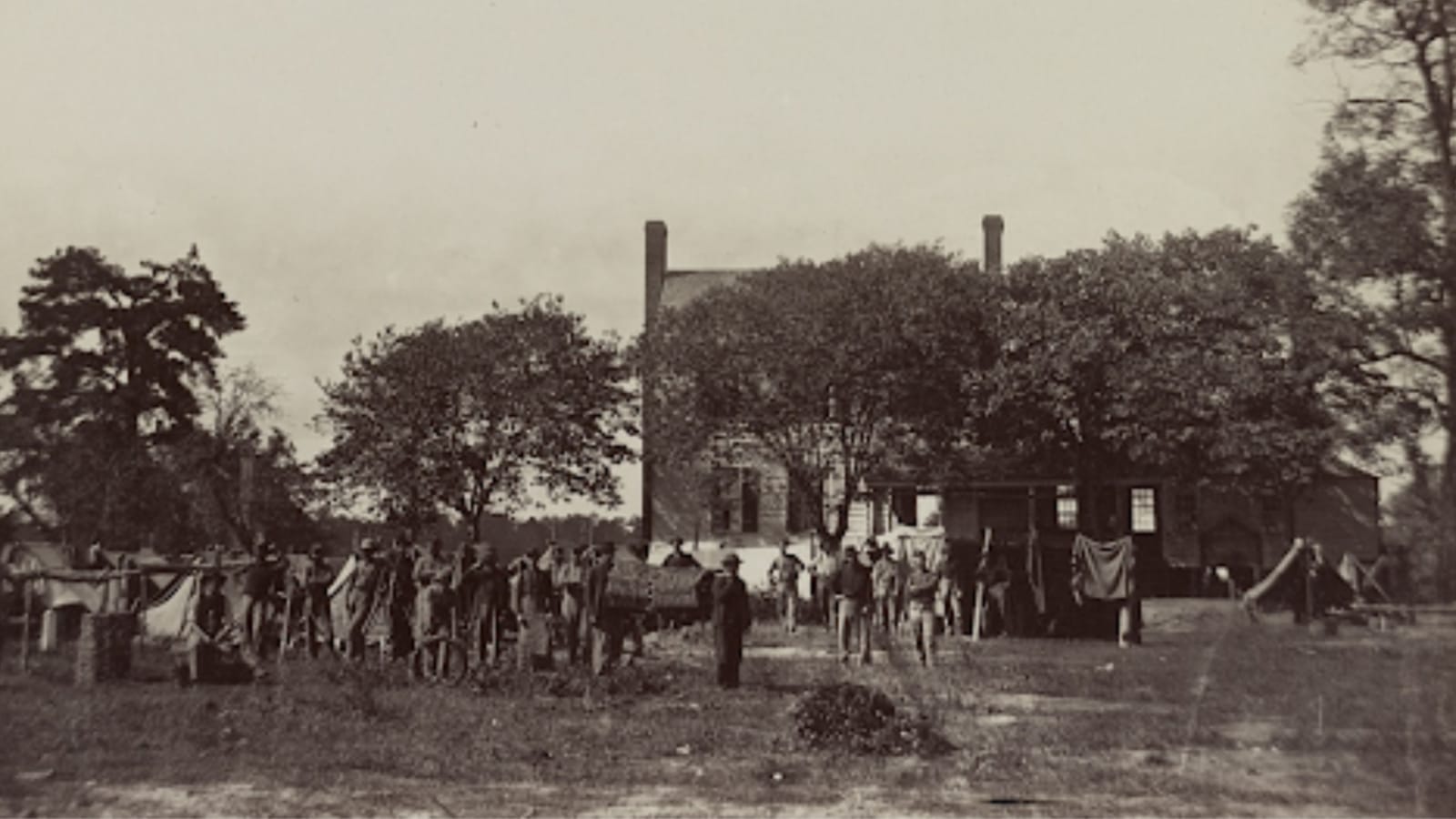Sleeping with the enemy: the Quartering Acts, the Revolution and the Third Amendment.
The Third Amendment was a hugely important part of the Bill of Rights in 1791. Now it's dead. How come?

In the mid-2020s we Americans are starting to come up on the 250th anniversary of key events of the American Revolution era. I haven’t seen much commemoration of this, certainly not like the various public celebrations of the 1970s, but the anniversaries exist. Two hundred and fifty years ago this month, in June 1774, the British Parliament passed a curious law that was a huge deal at the time, but which seems rather a minor issue to us today. The Quartering Act provided that American colonists must provide British troops stationed in the colonies with shelter and food, at their own expense.
This was actually one of two Quartering Acts. The previous one was passed in 1765 and expired a few years later. The presence of large numbers of British troops in the American colonies in 1774 was a direct response to increasingly serious incidents of revolutionary violence and protest, namely in Massachusetts; the Boston Tea Party of December 1773 was the immediate catalyst. Most of the troops the British were sending to the colonies at that time were destined for Massachusetts, believed to be the most “radical” of the rebellious colonies.
The Quartering Act has gone down in history as one of the “Intolerable Acts” that eventually led to armed conflict between colonists and the British, and ultimately American independence. There’s a lot of historical myopia, much of it inadvertently caused by shorthand treatment of the subject, about the American Revolution, and the issue of quartering soldiers is no exception. Quite often when presented in U.S. history courses, the “Intolerable Acts” and other acts of provocation against Americans by the British seem to come out of nowhere, as if George III and his ministers were sitting around bored in London and somebody said, apropos of nothing, “Hey, I know! Let’s start oppressing the colonists, levying huge taxes on them and making their lives miserable! That should be good for a couple of yuks.”

The truth is much more complicated. Between 1754 and 1763, the British were forced to defend their North American colonies against the French at exorbitant, virtually nation-bankrupting expense. In America this conflict was called the French and Indian Wars; in Europe, the Seven Years War. In any event Britain needed a huge army on the ground not only to defeat the French, but also to defend the British colonies, largely against Native Americans (many of whom had been allied with the French). As an efficiency move the British Parliament redefined and revamped their relationship with the colonies after 1763, hoping to make them less costly and more answerable to Britain, who was, for the most part, footing the bill for their defense. Not without justification, these changes were interpreted by Americans as very oppressive and heavy-handed. When unrest broke out in the colonies over them, Britain militarized their response. Hence, the Quartering Act.
Being forced to board strange troops—many of them not necessarily British—in their private homes predictably angered Americans, although not many of them were personally affected. Boston was, by far, the place where this was most commonly done. Quartering soldiers so stuck in the craw of American revolutionaries that, not only did every colony but Pennsylvania take action to thwart it specifically, but the grievance found its way two years later into the Declaration of Independence. Then, after the war was over, it resurfaced as part of the Bill of Rights which pro-Constitution Federalists agreed to adopt as a means of securing more support for ratification. The Third Amendment, passed in 1791, prohibits soldiers from being quartered in private homes.
Then, curiously, the issue vanishes from American history. Quartering soldiers is an extreme rarity in Constitutional milieu: a part of the U.S. Constitution that is utterly uncontroversial, which never comes into dispute, and whose meaning has almost never even been questioned in court. This is more surprising than it might seem. The rise of large-scale standing American armies with dedicated barracks and military bases designed for their support didn’t occur until the 20th century, so it’s not as though there weren’t opportunities to test it. During the Civil War, both Union and Confederate armies took over private houses as headquarters, hospitals and other needed facilities. Yet strangely no Third Amendment claims worked their way through the courts in the 1860s or 1870s, as one might expect.

Indeed the Third Amendment has only ever come to court once in over 200 years, in a federal circuit court case called Engblom v. Carey. Decided in 1982, the case involved National Guard troops and their billeting during a strike. The decision itself is pretty dull, but it did uphold the validity of the Third Amendment, and interpreted it as applying to the states and that National Guard personnel qualify as “troops.” Thus the Third Amendment, while certainly not used very much, is very much alive and still part of the Constitution.
So the next time a British Army unit knocks on the door of your house and says, “Hello, we’d like to sleep here tonight,” you’re well within your rights to tell them to go check into a hotel. Unless, of course, sleeping with soldiers is your thing.
The Value Proposition
Why should you be reading this blog, or receiving it as a newsletter? This is why.
☕ If you appreciate what I do, buy me a virtual coffee from time-to-time to support my work. I know it seems small, but it truly helps.
📖 You could also buy my newest book.
🎓 Like learning? Find out what courses I’m currently offering at my website.
📽 More the visual type? Here is my YouTube channel with tons of free history videos.



Comments ()